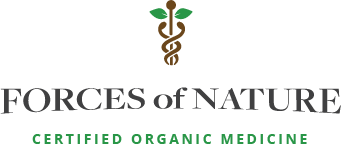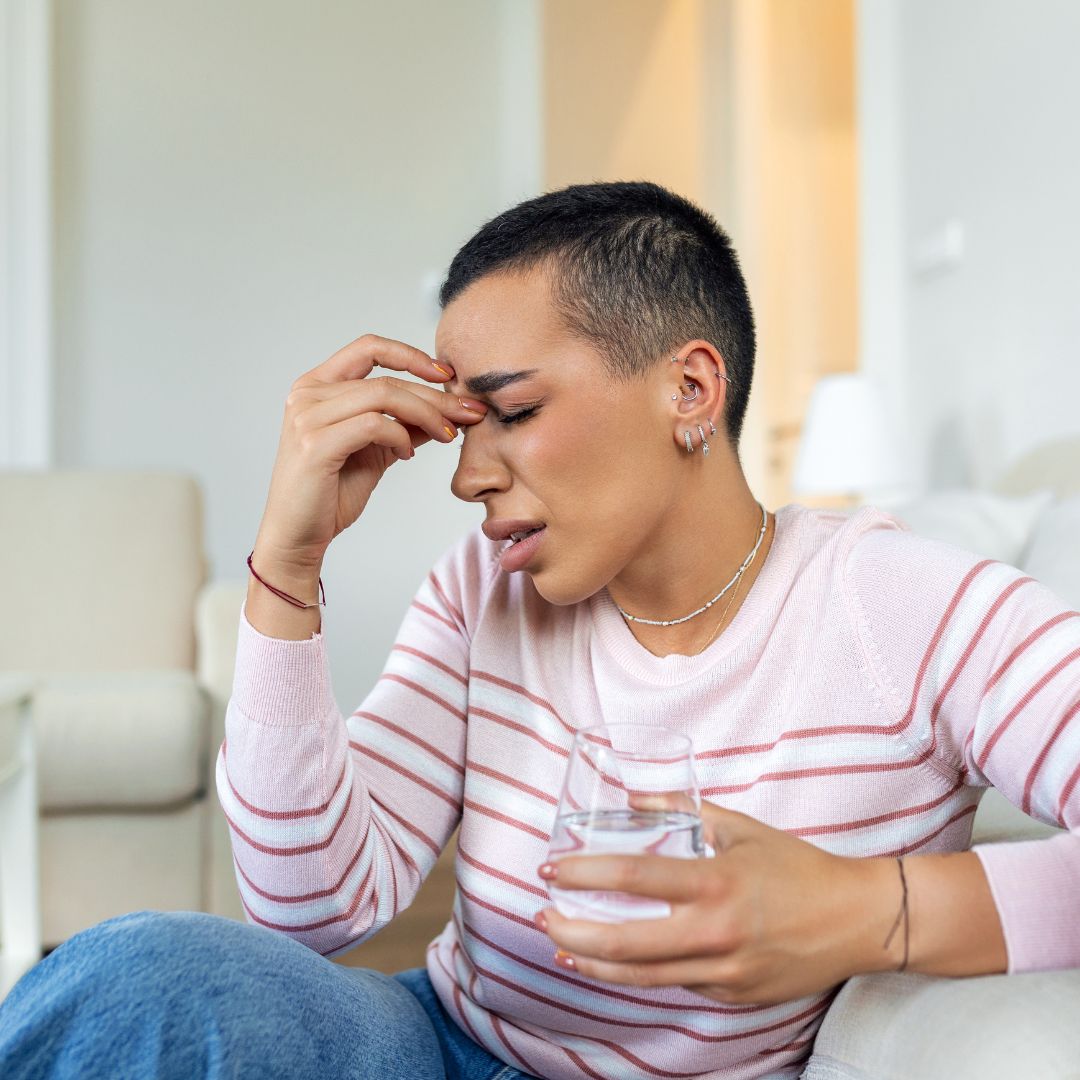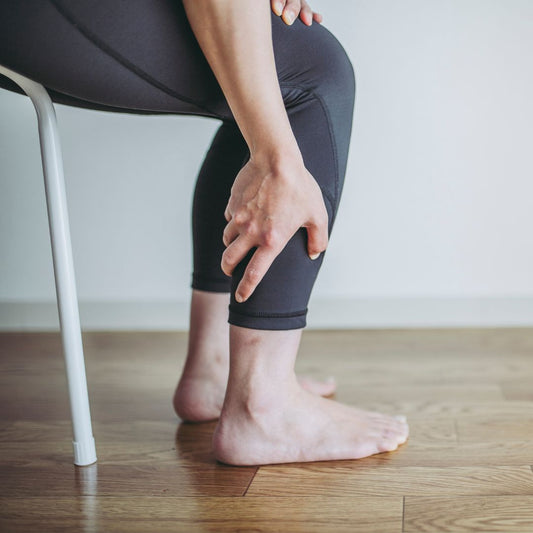Winter is right around the corner, and with that comes the revolving door of cold and flu. Between a constant runny nose to coughing and congestion, it can be hard to navigate if you’re dealing with your run of the mill seasonal illness or if you are on track for the cold to turn into an infection. One thing for certain is if your congested nose turns into uncomfortable, intense pressure in your face and head, you may be looking at a sinus infection also known as sinusitis.
Luckily, we have a guide to help you recognize sinus infection symptoms, remedies, and prevention all in hopes to make this cold and flu season not only more manageable but possibly avoid sinusitis all together.
Understanding Sinus Infections
So, how does a cold turn into a sinus infection or sinusitis? When you come down with a cold, it can cause inflammation and congestion in the nasal passages and sinuses. This congestion can block the sinuses and prevent proper drainage resulting in a viral sinus infection. When your sinus doesn’t drain effectively, mucus accumulates and creates an environment in which bacteria thrives. This is what leads to a secondary bacterial infection in the sinuses.
However, it is not just the common cold that causes this infection. Any ailment that causes for the nasal passage to become inflamed and congested has an increase chance of developing a sinus infection. Those who suffer from allergic rhinitis, a nasal structural abnormality such as nasal polyps, or are sensitive to environmental irritants all are at risk.
It’s also important to note that the duration and cause can classify the type of sinus infection you’re dealing with as well. Those may include:
- Acute Sinusitis: Typically caused by a bacterial infection following a cold or upper respiratory infection. Symptoms last for a short duration, around 4 weeks or less.
- Subacute Sinusitis: This type lasts longer than acute sinusitis, usually between 4 to 12 weeks. It can result from a prolonged bacterial infection or an untreated acute sinusitis.
- Chronic Sinusitis: Lasting for 12 weeks or more, chronic sinusitis is often due to inflammation rather than infection. It can result from infections, allergies, or anatomical issues like nasal polyps or a deviated septum.
- Recurrent Sinusitis: This occurs when a person has several sinus infections within a year.
Symptoms of Sinus Infections
While we have discussed that sinus infections go hand-in-hand with congestion, other symptoms can vary in intensity and duration including:
- Facial pain or pressure: Often felt around the forehead, eyes, and cheeks.
- Pressure or pain in your teeth: It may feel like your gums are tender around your teeth.
- Nasal congestion: Difficulty breathing through the nose due to blockage.
- Runny or stuffy nose: Discharge may be thick, yellow, or green, and even bloody.
- Cough: Particularly if the mucus drips down the throat.
- Headache: Typically, a sinus infection headache is in the forehead.
- Reduced sense of smell and taste: Due to nasal congestion.
- Sore throat: Caused by postnasal drip.
- Fatigue: Feeling generally tired or unwell.
- Fever: Sometimes, but not always present, and tends to be low-grade.
So, how do you know if it’s a sinus infection or another illness? There are a few ways to be able to differentiate between sinusitis and the common cold, allergic rhinitis, and even migraine.
For example, the common cold may produce similar symptoms like a runny or stuffy nose, but a cold will improve within a week while sinusitis will continue to worsen. Allergies (or allergic rhinitis and hay fever) will cause facial pressure within the same likeness as sinusitis but can be treated using antihistamines. And with migraine, facial pressure may occur, but light and sound sensitivity also tend to be a symptom which isn’t typical of a sinus infection.
Diagnosis and Medical Consultation
If you have concluded that you most likely have a sinus infection, what’s next? Well, if your runny nose and congestion only continues to worsen, you notice yellow or green mucus, and the pressure in your face is unbearable, it’s time to see a doctor. Your provider will most likely check your ears, nose, and throat for swelling, drainage or blockage by using an endoscope. Other methods for diagnosis may include:
- A nasal swab to get a fluid sample to test for the germ causing your symptoms.
- If severe enough, your provider may want to check inside your sinuses.
- Allergy testing. If you suffer from chronic sinusitis, your provider may want to test for allergies.
Most times, a sinus infection may clear up on its own, but in rare cases, untreated sinus infections can lead to meningitis or a brain abscess. Regardless, it’s always important to talk with your provider.
Treatment Options
After visiting with your provider, your doctor may prescribe an antibiotic to help with the infection if bacteria are to blame. Typically, for acute sinusitis, it will take about 10-14 days for it to clear up after medication, but only if it is a bacterial infection. If the infection is viral, sinus infection treatments may include home remedies and OTC medications.
Sinusitis Natural Treatment May Include:
- Nasal Irrigation: Use a saline solution to flush out mucus and allergens from your sinuses. Neti pots or saline nasal sprays can be quite effective.
- Steam Inhalation: Inhaling steam from a bowl of hot water or taking a hot shower can help ease congestion and moisturize your sinuses.
- Warm Compress: Applying a warm compress over your sinuses can help alleviate pain and pressure.
- Hydration: Drink plenty of water to thin mucus and keep your sinuses hydrated.
- Spices and Herbs: Consuming spicy foods like horseradish, cayenne pepper, or herbs like ginger and turmeric may help alleviate sinus congestion.
- Essential Oils: Peppermint, eucalyptus, and tea tree oils have decongestant properties. Adding a few drops to a humidifier or inhaling the aroma can help open up your sinuses.
- Apple Cider Vinegar: Some people find relief by drinking a mixture of apple cider vinegar and water. It's believed to help with sinus drainage.
- Rest and Sleep: Adequate rest helps your body heal and boosts your immune system.
- Sinus Relief Maximum Strength – Our natural and organic sinus medicine helps reverse sinus congestion, pain, and sinusitis symptoms. This maximum strength sinus relief medicine thus not only helps drain the sinuses but also acts on the root cause helping prevent recurrence.
Other treatment options may include over-the-counter (OTC) medications such as ibuprofen or acetaminophen and even nasal sprays as a way to help ease discomfort. It’s important to know that OTCs won’t cure your sinus infection, but they can help. However, be sure to follow the instructions on the label, and don't take them for more than the recommended number of days. Check with your doctor to see which one is right for you.
How To Prevent A Sinus Infection
While a common cold or allergens may not be completely avoidable, there are ways to prevent sinus infections from forming. Preventing a sinus infection may be as easy as adjusting your lifestyle and hygiene practices.
Maintaining Nasal Health: A great way to keep nasal passages moist to avoid mucus blockages is as simple as staying hydrated, humidifying the air (especially in dry climates during the winter) and regularly using a saline solution to cleanse your nasal passages.
Manage Your Allergies: If you tend to have a severe reaction to allergens, hay fever or chronic allergic rhinitis, be sure to try and identify your triggers and avoid them. During high pollen seasons, keep windows closed and use air conditioning to minimize exposure. And if it’s seasonal allergies that are your issue, work with your healthcare provider on an allergy medication to help keep the flare up at bay.
Healthy Living and Diet: A healthy diet can make all the difference in your immune system. Consume healthy, balanced diet rich in fruits and vegetables and incorporate regular physical activity to enhance your overall health and immunity.
Control Your Environment: Keep your air quality clean by minimizing exposure to irritants like cigarette smoke, strong odors, or pollutants.
In the end, a sinus infection, while miserable, can be prevented and treated if it comes down to it. By understanding the symptoms, applying effective remedies, and adopting preventive measures, you can significantly alleviate the impact of sinus infections on your daily life. And remember, if home remedies aren’t alleviating your symptoms and your pain continues to increase, seek professional guidance.




